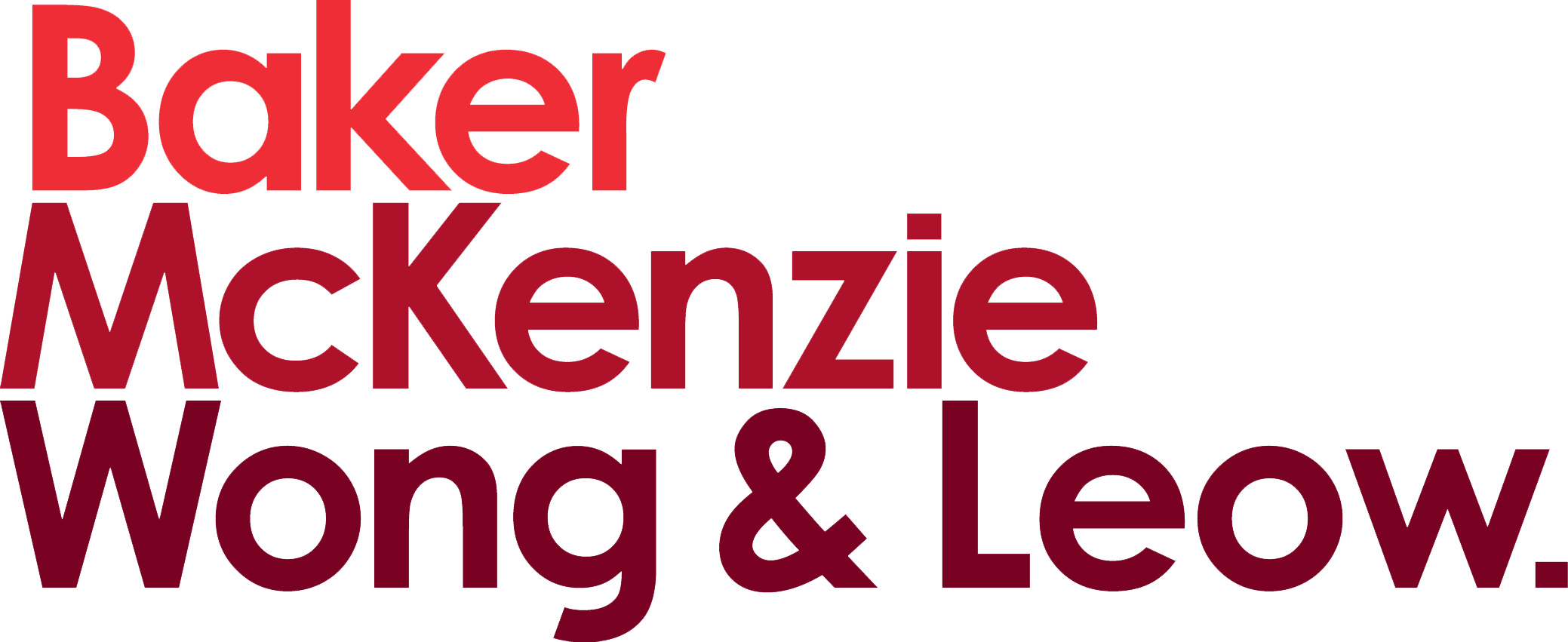In brief
The Monetary Authority of Singapore (MAS) recently released a consultation (“Consultation“) on its “Proposed Amendments to MAS’ Investigative and Other Powers under the Various Acts.”1 The amendments, to be introduced through the Financial Institutions (“Miscellaneous Amendments“) Bill (“proposed provisions“), will expand the supervisory and enforcement powers of the MAS under the following acts: Banking Act (BA); Credit Bureau Act; Financial Advisers Act (FAA); Insurance Act (IA); Payment Services Act (PS Act); Securities and Futures Act (SFA); Trust Companies Act (TCA); and the upcoming new omnibus Act (“new Act“) for the financial sector (collectively, “relevant Acts“). The Consultation will close on 1 August 2021. We discuss the amendments and the regulatory concerns they address in more depth.
In more detail
The FI Amendment Bill will amend the supervision and enforcement powers of the MAS pursuant to the relevant Acts and facilitate updates to existing powers where necessary. The proposed amendments in the Consultation are to the following:
- Part A: Proposed enhancements to MAS’ investigative powers
- Part B: Clarification of applicability of MAS’ reprimand powers under the SFA, FAA and TCA
- Part C: Proposed expansion of MAS’ powers to issue written directions under the SFA to regulate financial institutions (FIs) conducting unregulated business
We consider these proposals in more detail below.
Part A
Power to require information from any person for the purposes of investigation
The MAS proposes to amend the BA and the new Act to provide power to the MAS to require information, including in electronic form, from any person. This will close a regulatory anomaly where currently, the MAS may require documentation to be provided by FIs, but cannot request it directly from employees of such institutions. The expanded power will also enable the MAS to obtain documentation from former employees of FIs or others who are currently outside the scope of MAS’ current powers. The MAS also proposes to update the provisions of the IA, PS Act, TCA, SFA and FAA to explicitly include information that is in electronic form.
Provisions relating to examinations of person and recording of statements
Power requiring any person to appear for examination and statement recording
The MAS proposes to align the BA, IA, PS Act, TCA and the new Act with the existing powers under the SFA and FAA, which already contain an express power to require an examination and the procedural requirements enabling MAS investigators to conduct such examinations.
Power to obtain a court warrant if examinee fails to appear for examination
To ensure that the power to examine witnesses can be effectively implemented and enforced, it is proposed to also enable the MAS to report any failure by an examinee to attend an examination to a Magistrate, who can thereafter issue a warrant compelling the examinee to attend the examination. Consistent with other legislation, failure to comply with the Magistrate’s directions would be subject to further penalties for contempt of Court, along with penalties for failing to comply with the original requirements to attend the examination.
Giving a copy of the written record to the examinee
The existing requirement pursuant to the FAA and SFA to provide an examinee with a copy of the record of an examination, if requested, will be changed to require mandatory provision of a copy to the examinee. A consistent approach will be adopted under the remaining relevant Acts.
Power to enter premises without a warrant
The MAS proposes to include provisions in the BA, IA, PS Act, TCA and the new Act enabling any MAS investigator or authorised officer to enter any premises without a warrant. The investigator or authorised officer will be required to have reasonable grounds to suspect that the premises are, or have been, used by a person being investigated by MAS. Any person on the premises may be compelled to produce evidence considered relevant to the investigation or to state where the evidence may be found. The MAS will also remove the existing requirements under the SFA and FAA (other than for breaches of Part XII of the SFA and Part III of the FAA), to provide two days’ prior notice to the occupier of a premises before entry can be made without a warrant to prevent the risk of incriminating evidence being destroyed or concealed prior to entry. The MAS has noted in the Consultation that its intention is that exercise of this power will be limited to circumstances where it assesses that there is a real risk of evidence being destroyed or tampered with if a production order is issued in advance of any entry.
Power to obtain court warrant to seize evidence
New provisions are proposed to be added to the BA, IA, PS Act and the new Act to enable the MAS to obtain a warrant to seize evidence, including electronic evidence, when either of the following occurs:
- There has been a failure to comply with an order to produce such evidence.
- There is a risk the evidence will be concealed, removed, tampered with or destroyed if an order is made for the same to be produced.
The provisions are proposed to also define the scope of activities that the MAS will be authorised to undertake pursuant to the warrant. It is envisaged that the requirement for the warrant to be issued by a Magistrate will ensure the following:
- Warrants will only be granted when there are grounds to do so.
- The scope of the warrant will be carefully calibrated and appropriate.
Whilst the power for the MAS to obtain a warrant already exists under the SFA, FAA and TCA, it will be clarified that the warrant includes electronic evidence, and the scope of the TCA power, which is currently narrower than that of the SFA and FAA, will be expanded to be consistent.
Powers relating to transfer of evidence between MAS, the Police and the Public Prosecutor
The MAS has proposed that the existing capacity for information and evidence transfer by the Police and the Public Prosecutor under the Criminal Procedure Code, which enables the MAS to commence civil proceedings for offences against Part XII (Market Misconduct) of the SFA be supplemented by enabling similar transfers under Part VII (Disclosure of Interests). This would ensure that offences of either kind would be subject to potential criminal and civil liability in a consistent manner and enhance the efficiency of enforcement actions for Part VII offences.
The MAS also proposes to expand the capacity under section 168B of the SFA to enable transfer of evidence collected by the MAS involving any offence under the SFA to the Police or the Public Prosecutor for potential criminal investigations or proceedings. Similar provisions will be introduced into the other relevant Acts, save for the FAA which already enables such transfers.
The proposed changes will also authorise the transfer of information from other law enforcement agencies to the MAS in the event that the evidence reveals potential offences under the relevant Acts. This will remove potential gaps in information transfers that may otherwise prevent the commencement of enforcement actions and also reduce the need to duplicate any investigative actions that have already been undertaken.
Part B
Clarification of applicability of MAS’ reprimand powers under the SFA, FAA and TCA
MAS is proposing amendments to the reprimand powers that would enable the MAS to reprimand any person who was a “relevant person” at the time of misconduct. This would mean that a reprimand could be issued to a person who is no longer licensed, registered, authorised, approved, recognised or exempted (in the case of FIs) when the misconduct is discovered or when the reprimand is issued. This will overcome the current ability to avoid potential penalties by resigning and leaving the financial industry before an investigation is completed.
Part C
Directions regarding unregulated activities
The MAS has noted that losses from the conduct of unregulated businesses may expose regulated FIs to additional risk and adversely impact their ability to meet customer obligations in regulated activities. Customers may also be unaware that some of the activities undertaken by a regulated FI are in fact unregulated. The MAS has previously issued targeted guidance, particularly with regard to crypto-assets, to regulated FIs requiring the adoption of risk mitigation measures including maintaining appropriate collateral levels or disclosures. The MAS now proposes to introduce a power in the SFA, enabling it to issue legally binding directions to capital markets services licence holders and their representatives in relation to conducting unregulated business when it considers it necessary in the public interest or in the interest of investors.
The proposed new powers will be broad and include making directions regarding the following:
- the scale of the operation of the unregulated business
- the standards to be maintained by the person concerned in the conduct of the unregulated business
- the activities of the person concerned with respect to the unregulated business, including the manner, method and place of soliciting business by the person and their business representatives and the conduct of such solicitation
Failure to comply with a direction will be liable to a fine not exceeding SGD 50,000 and in the case of a continuing offence to a further fine of SGD 5,000 for every day or part thereof during which the offence continues after conviction.
Consultation timeline
The consultation period will end on 1 August 2021.
Key takeaways
The proposed changes represent an important expansion and standardisation of the MAS’ powers across the relevant Acts, and MAS’ expanded reach toward ex-employees of financial institutions or entities outside the scope of MAS’ supervision. Separately, capital markets services licence holders may potentially be subject to regulations with respect to any unregulated activities carried out by the licence holders.
If you would like to collaborate on a submission, or if you have any questions on how any of the proposals may impact your business, please do not hesitate to liaise with your usual contact at Baker McKenzie or the lawyers listed in this Alert.
1 2021-07-02 Proposed Amendments to MAS’ Investigative and Other Powers under the Various Acts (final, 1233).
* * * * *

Baker McKenzie Wong & Leow is a member firm of Baker & McKenzie International, a global law firm with member law firms around the world. In accordance with the common terminology used in professional service organizations, reference to a “partner” means a person who is a partner or equivalent in such a law firm. Similarly, reference to an “office” means an office of any such law firm. This may qualify as “Attorney Advertising” requiring notice in some jurisdictions. Prior results do not guarantee a similar outcome.






